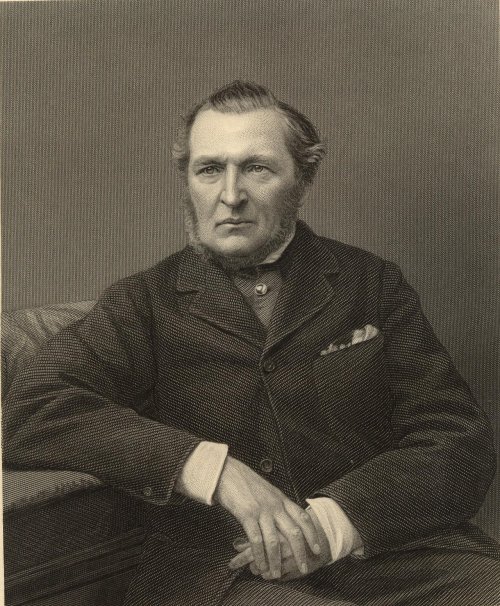Hughes V Metropolitan Rly Co on:
[Wikipedia]
[Google]
[Amazon]
''Hughes v Metropolitan Railway Co'' 877is a
 In this instance the rights of the landlord were suspended only temporarily, allowing the tenant more time to repair.
In this instance the rights of the landlord were suspended only temporarily, allowing the tenant more time to repair.
House of Lords
The House of Lords, also known as the House of Peers, is the upper house of the Parliament of the United Kingdom. Membership is by appointment, heredity or official function. Like the House of Commons, it meets in the Palace of Westminste ...
case considered unremarkable for many years until it was resurrected by Lord Denning
Alfred Thompson "Tom" Denning, Baron Denning (23 January 1899 – 5 March 1999) was an English lawyer and judge. He was called to the bar of England and Wales in 1923 and became a King's Counsel in 1938. Denning became a judge in 1944 wh ...
in the case of ''Central London Property Trust Ltd v High Trees House Ltd
''Central London Property Trust Ltd v High Trees House Ltd'' 947KB 130 is a famous English contract law decision in the High Court. It reaffirmed and extended the doctrine of promissory estoppel in contract law in England and Wales. Howeve ...
'' in his development of the doctrine of promissory estoppel
A promise is a commitment by someone to do or not do something. As a noun ''promise'' means a declaration assuring that one will or will not do something. As a verb it means to commit oneself by a promise to do or give. It can also mean a capacity ...
. The case was the first known instance of the concept of promissory estoppel.
Facts
Thomas Hughes owned property leased to the Railway Company at 216 Euston Road. Under the lease, Hughes was entitled to compel the tenant to repair the building within six months of notice. Notice was given on 22 October 1874 from which the tenants had until 22 April to finish the repairs. On 28 November, the tenant railway company sent a letter proposing that Hughes purchase the tenant's leasehold interest. Negotiations began but later broke down, at which point the landlord demanded the repair of the building from 6 months since the original notice. The tenant claimed he should have had 6 months from the time the negotiations broke down, based on promissory estoppel.Judgment
Court of Common Pleas
TheCourt of Common Pleas
A court of common pleas is a common kind of court structure found in various common law jurisdictions. The form originated with the Court of Common Pleas at Westminster, which was created to permit individuals to press civil grievances against one ...
held in favour of the landlord, Mr Hughes. Metropolitan appealed. Lord Coleridge CJ
John Duke Coleridge, 1st Baron Coleridge, PC (3 December 1820 – 14 June 1894) was an English lawyer, judge and Liberal politician. He held the posts, in turn, of Solicitor General for England and Wales, Attorney General for England and Wales ...
delivered the leading judgment, with which Brett J
Brett derives from a Middle English surname meaning "Briton" or "Breton", referring to the Celtic people of Britain and Brittany, France. Brette can be a feminine name.
People with the surname
* Adrian Brett (born 1945) English flutist and writer ...
and Lindley J concurred.
Court of Appeal
The Court of Appeal (1875–76) LR 1 CPD 120 reversed the decision of Court of Common Pleas. James LJ,Mellish LJ
Sir George Mellish, Privy Council of the United Kingdom, PC (19 December 1814 – 15 June 1877) was an English barrister, judge of the Court of Appeal in Chancery, and member of the Judicial Committee of the Privy Council.
Early life
Born at ...
, Baggallay JA, Mellor J, and Cleasby B gave judgments.
House of Lords
The House of Lords affirmed the Court of Appeal. It ruled that with the initiation of the negotiations there was an implied promise by the landlord not to enforce their strict legal rights with respect to the time limit on the repairs, and the tenant acted on this promise to their detriment.Lord Cairns LC
Hugh McCalmont Cairns, 1st Earl Cairns (27 December 1819 – 2 April 1885), was an Irish-born British statesman who served as Lord High Chancellor of Great Britain during the first two ministries of Benjamin Disraeli. He was one of the most ...
gave the lead judgment, with which Lords O'Hagan, Selborne, Blackburn and Gordon concurred.
 In this instance the rights of the landlord were suspended only temporarily, allowing the tenant more time to repair.
In this instance the rights of the landlord were suspended only temporarily, allowing the tenant more time to repair.
See also
*Consideration in English law
Consideration is an English common law concept within the law of contract, and is a necessity for simple contracts (but not for special contracts by deed). The concept of consideration has been adopted by other common law jurisdictions, includin ...
References
{{reflist External links UKHL 1
House of Lords cases
1877 in case law
Lord Blackburn cases
English enforceability case law
English estoppel case law
1877 in British law
Railway litigation in 1877